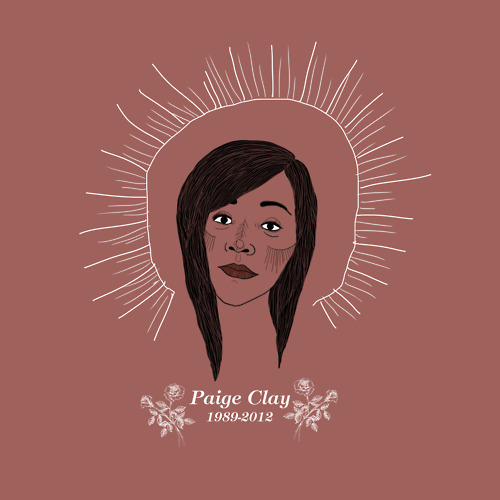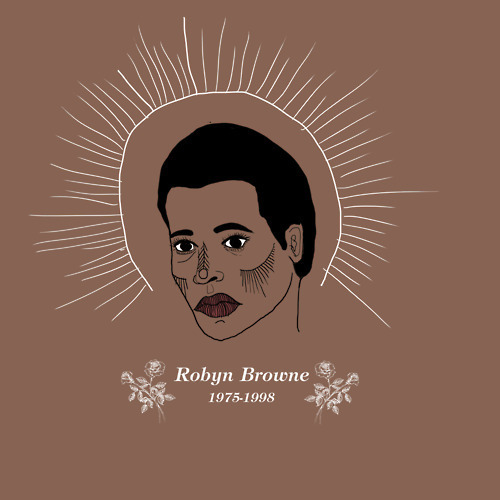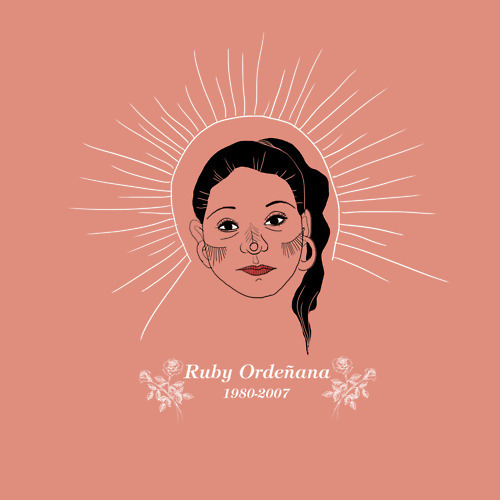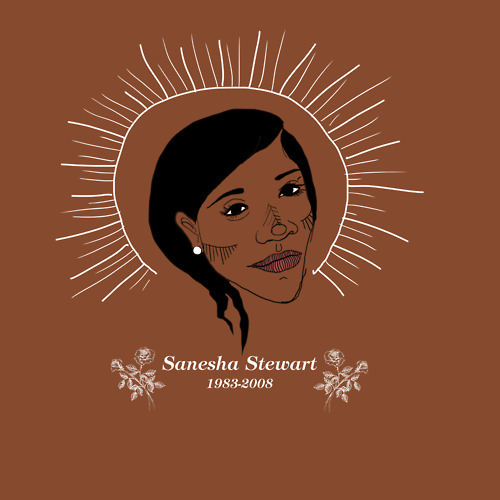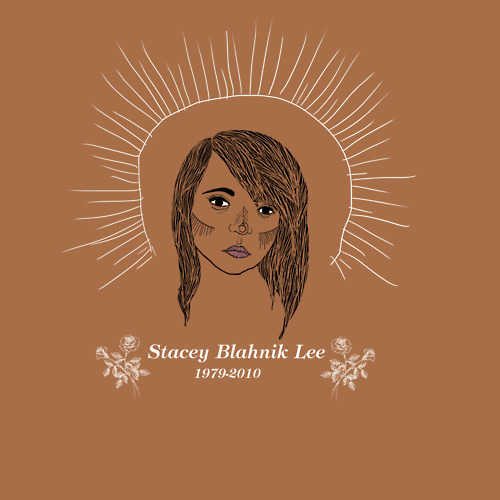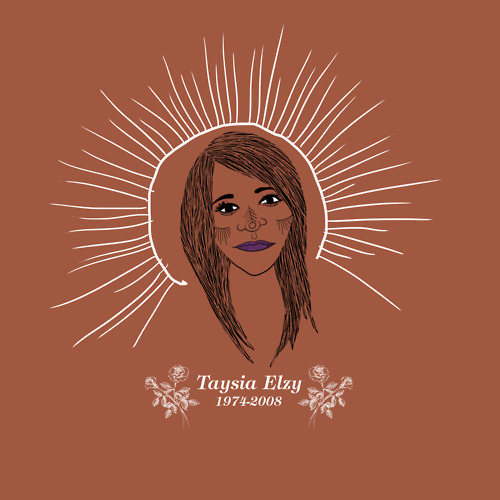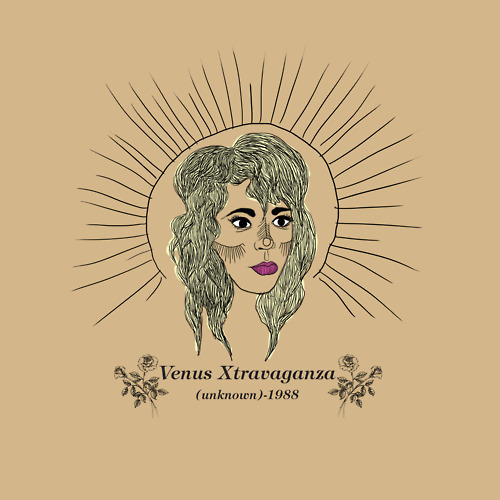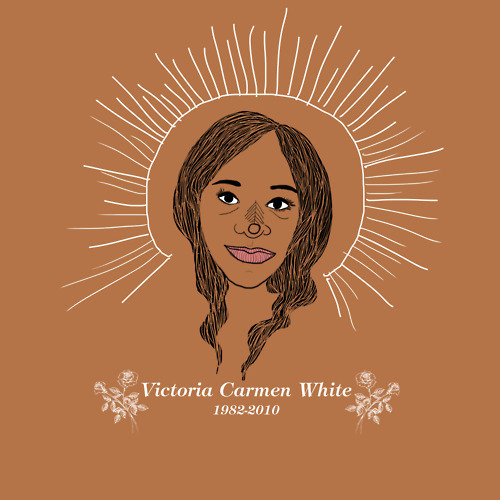Audacia Ray's Blog, page 33
April 26, 2012
"State lawmakers should approve a bill that would bar the practice of confiscating condoms as..."
State lawmakers should approve a bill that would bar the practice of confiscating condoms as evidence against those suspected of prostitution. The current policy is a double-edged sword that undermines both the state’s and New York City’s public health agendas.
Sex worker advocacy organizations have long called for police officers to stop confiscating condoms from women and men who work as prostitutes. Studies show that police confiscate prostitutes’ condoms even when no arrests are made. And in cases where there are arrests, officers often tell suspects that carrying condoms is the reason for the action.
Such practice creates confusion among prostitutes, who, in turn, stop carrying condoms out of fear of police action. Contrary to misperception, the legislative proposal –sponsored by Senator Velmanette Montgomery and Assemblywoman Barbara Clark-would not affect the ability of cops to use condoms as evidence in sex trade and sexual assault crimes.
New York City, which is the epicenter of the HIV/AIDS epidemic in the United States, has put in place aggressive measures to stop the spread of STDs. These include the mass distribution of free NYC-branded condoms (3 million per month); a smartphone app to locate venues that distribute these free condoms; and a sex education curriculum in public schools that teaches young people how important it is to practice safe sex.
These initiatives are a sensible and responsible way to tackle a serious public health issue. But shooting a hole into this by sending a message that carrying a condom is a crime is backwards and unsafe.
Prostitution is illegal in New York. But that hasn’t stopped the world’s oldest profession. It’s time to be real and safe. Albany lawmakers must pass the bill and put an end to a practice that is more risky than rewarding.
”-
Nos quieren engatusar con faldas y apellidos - eldiariony.com
El Diario editorial in favor of passing the New York State no condoms as evidence bill (A1008/S323). It’s a HUGE deal to get a daily paper to write an editorial on a bill. Hell to the yeah!
April 25, 2012
"Last year, New York City health workers gave out 37.2 million condoms. That works out to an average..."
Last year, New York City health workers gave out 37.2 million condoms. That works out to an average of 70 condoms every minute of the year. The city got into mass-scale condom distribution to help prevent the spread of debilitating and deadly diseases.
On the other hand, the condoms are also used to mark people for arrest on prostitution charges.
[snip]
One arm of the government is giving people condoms. Another arm is confiscating them from the very people who are most vulnerable to catching bugs and passing them along. How, precisely, does this make sense?
”-
Good piece in the New York Times about the condoms as evidence issue, with some quotes by me as well as Sienna Baskin from the Sex Workers Project.
April 24, 2012
Yesterday I spent a few hours talking about Cooking in Heels...

Yesterday I spent a few hours talking about Cooking in Heels with Ceyenne and a longtime friend of hers, Jack (aka Flawless Sabrina), in the Upper East Side apartment where he has lived since the late 1960s. The apartment has lots of gorgeous antiques, and is cluttered with the objects that symbolize a life well celebrated: photos, newspaper clippings, wigs, a first edition of John Rechy’s City of Night. We talked about how things have changed and how they haven’t, about police violence and fabulous parties - and of course, we ate. Jack has been immensely important to Ceyenne over the years, offering refuge, support, and kindness to her when those things ran in short supply in her life. We showed him our Kickstarter video and he shed some tears and then clapped in glee at the end. There’s a dish in the book named after him, but he doesn’t know that yet.
Ceyenne prepared her signature quiche - in the Kickstarter video she talks about the first time she prepared it for her family. In her youth, Ceyenne’s quiche made her safe. Her parents were less abusive whenever she was cooking, because they needed her - and damn is she good at it. I stood in Jack’s kitchen with Ceyenne as she prepared the food, and took this shot of her kneading the dough for the quiche crust.
Secret ingredient: pancake mix. The final product was fluffy and cheesy and amazing.
We told Jack about the success we’re having with the Kickstarter campaign and told him about our hopes for making a book with color photos of 5-10 dishes. That’s looking more and more like the reality of this project, as we steadily climb to $8000 in pledges, and beyond. Can we raise $10,000? Maybe $12,000? That would make it possible for us to produce episodes of Ceyenne’s dream online cooking show, which would be the same great quality as the video we produced for this campaign.
So, please keep spreading the word! We’ve got just over two weeks left to see how big we can make this.
vizzz:
(10 trans women who were killed by hate crimes. the...
April 22, 2012
clusters & constellations: An Open Letter to White People in the Sexuality/Sexology Field
cross posted at my Media Justice column
cross posted at my Media Justice column
I’m writing this letter regarding a particular interaction I recently had with a racially white person in the field. This person is planning a new program and project of which I was invited. I asked what the demographics were for this space, if there are any people of Color, with disabilities, youth, or trans* people. I was told, right now, there are no people of Color who are a part of the programming identified as “experts” and the demographics of participants is not available. The letter I wrote to this person is one that is filled with the same arguments I, and many other people of Color, have been making to racially white people in the field for years.
My decision to write and share with you this letter comes from my investment in the field (of which I’ve been a part for over a decade), but mostly because I care about the people of Color who wish to join this field, those people of Color who gave their lives to this field, and those of us who are still here doing work.
Have you noted the lack of people of Color in the field? When I’ve brought this to the attention of some of you, your responses have mostly fallen into the category of: “the field is what it is.” This response is problematic on numerous levels. It ignores and erases the people of Color who were a part of the field, helped create it in the US, those of us here today, and those of us to come. This response does not question the colonial legacies and white supremacy of which the US field was created and remains.
The field “is what it is” because of the lives, bodies, and sacrifice of people of Color. From the life of Saartjie Baartman, to the enslaved African women experimented on by “doctors” such as James Marion Sims, Henrietta Lacks, Black families in the Tuskegee Experiment, the forcibly sterilized Puerto Rican, Native and people with disabilities in the US; Rosie Jimenez, and the nurses, healers, doulas, midwives, and educators of Color save the lives of people every day make the field.
I understand when I write about youth people assume it is always folks under the age of 18. Sometimes this is true. Sometimes the term “youth” is more inclusive. What does remain when people who identify as “professional” or “experts” in the field is the ageism and elitism that isolates and excludes youth of any age. Assuming that youth are not serious about this profession, or cannot understand or put the time in necessary to develop their skills and abilities ignores the amazing work youth have done in their communities, especially as peer educators. Many of the amazing people of Color I know moving the field forward are under 30, several under 25. I have met and mentored peer educators who at the age of 14 are working at a local clinic/health centers or are students in college (because not all of us can afford to go to college or have the ability to attend) and seeking careers in this field. It is them who are on the vanguard of the work and who will remain when we are no longer here. Why are they ignored?
If we truly believe the field in the US must grow, evolve, and change and that we welcome anyone who cares and wants to do the work, we cannot exclude youth. Ever. It seems only certain types of sexuality professionals are seen as being able to grow, evolve and move the field in the US forward. When you think of why people of Color are not attracted to your space, website, services, etc. think about the marketing you implement. Many of the “experts” and professionals that are highlighted or treasured as valuable are all racially white people. Not only are they all racially white, but often the well known, highlighted “experts” are all blonde/light-haired people. Some of the “experts” that are highlighted have made offensive and oppressive remarks that perpetuate anti-Black racism and xenophobia.
When you reach out to those of us who are people of Color in the field, requesting our assistance in reaching our community it is often from a selfish space that is about your profit and advantage, not ours. As a result, we make our own spaces. Many of us are a part of Sister Song http://sistersong.net/ and/or the Women of Color Sexual Health Network, a group that was established at the 41st Annual AASECT Conference by 18 women of Color who were present (including myself) and were shocked and saddened by the exclusion of our lives, perspectives, work, experiences, community.
Honestly, at this point, this is the most I wish to help you reach more people of Color, trans* people, and people with disabilities. A internet search will help you find the national and local organizations that are centering the sexual health, and reproductive justice of people of Color. If you do not receive a response from them, know it is not always because we are disinterested, but because the images, language, and message that is a part of the space you wish to build already excludes us.
I have done my share of “helping” racially white people move their ideas, work, projects forward and target people of Color without any reciprocity. How are racially white folks in this field mentored, supported, prepared to succeed in this field and how is it different from how people of Color are prepared, mentored, and expected to succeed? Have those racially white folks considered how they have benefited from the white supremacy in the field that allows them success? How do those of us who are not racially white but in the field find and become successful? What are the barriers that racially white people in the field hold up, ignore, and not question or see that limit those of us of Color in the field? Why do racially white people only hear, what people of Color have said about the field for generations, when a white person says and repeats it?
These are questions I and many of us in the US who are of Color and in the field ask often. We will continue to ask more questions. My time in the field has led me to realize that unless these questions have been examined and attempts are made to shift, unlearn, relearn, heal, and process, I cannot find a space to grow, mentor, and to evolve. As a result, we create and find our own spaces.
My hope is that you consider speaking with your “experts” and those that you actively work to highlight and ask them how they would answer these questions, consider including such a dialogue in your sessions, and actively work to change this so that the field doesn’t remain as it is, but evolves in a way that recognizes the dignity people of Color embody and the safety and respect we too deserve.
Sincerely,
Bianca L
Sexologist, Educator, Revolutionary
LatinoSexuality.com
Amplify Media Justice Columnist
April 20, 2012
Struggling To Be Heard: NCAVP and Allied LGBTQ Organizations Stand in Solidarity with CeCe McDonald; Drop the Charges, Self-Defense is Not...
The National Coalition of Anti-Violence Programs (NCAVP) and allied lesbian, gay, bisexual, transgender, and queer (LGBTQ) organizations stand in solidarity with Cece McDonald, a young African American transgender woman violently attacked by a group of people in a racist and transphobic hate violence incident in June 2011 in Minneapolis, Minnesota. Despite being the survivor of this incident of violence, CeCe McDonald was the only person arrested. Hennepin County Attorney Michael Freeman has charged McDonald with two counts of second-degree murder for acting in self-defense and allegedly fatally stabbing one of her attackers. Hennepin County has dropped murder charges in three similar cases where people have acted in self-defense. NCAVP and our allies add our support to the public outcry to drop the charges against CeCe McDonald.
Transgender women of color face severe and deadly hate violence in the United States. NCAVP has responded to three murders of transgender women in the month of April alone. NCAVP’s most recent report, Hate Violence Against Lesbian, Gay, Bisexual, Transgender, Queer and HIV-Affected Communities in the United States in 2010, documented 27 anti-LGBTQH murders, the second highest yearly total ever recorded by the coalition. Transgender women made up 44% of the 27 reported hate murders in 2010, while representing only 11% of total survivors and victims. Transgender people represented a higher proportion of hate violence survivors with serious injuries (11.8%) as compared to non-transgender men (6.2%) or non-transgender women (1.3%).
The report also showed that transgender people and people of color were the least likely to receive medical attention, and that transgender people of color reported higher rates of negative law enforcement experiences. NCAVP members know that transgender survivors of violence often face biased and discriminatory treatment from law enforcement, courts, and other first responders. We are concerned that Mcdonald could be facing discriminatory charges based on her transgender identity. While we do not have all the details about this incident, our experience tells us to strongly advocate that Hennepin County consider CeCe McDonald as acting in self-defense.
NCAVP does not condone violence and expresses our condolences that a life has been lost in this incident. However, self-defense is not murder, and McDonald should not face murder charges for acting to defend her own life in a racist, transphobic assault. Charging McDonald with murder while other non-transgender people have not been charged by Hennepin County in similar cases where defendants were acting in self-defense highlights the potential differential treatment placed on McDonald because she is transgender. Furthermore, in a society where violence against transgender people is all too often condoned, ignored, and unsolved, charging McDonald with murder minimizes transphobic violence and reinforces a transphobic culture.
NCAVP and our allies call for Hennepin County to drop the charges against CeCe McDonald and for community members, anti-violence organizations, and public officials to take immediate action to support survivors of transphobic violence.
ACTION STEPS
Sign the Petition: Join Change.org in calling on County Attorney Michael Freeman to honor his committment, in his words “to serve all of our citizens with understanding, dignity, and respect” by dropping the charges against CeCe McDonald.
Report Violence: NCAVP encourages anyone who has experienced violence to contact a local anti-violence program. For help locating an anti-violence program in your area, please contact us.
Get involved: Join NCAVP in our efforts to prevent and respond to LGBTQH violence. Contact us to learn more.
NCAVP works to prevent, respond to, and end all forms of violence against and within lesbian, gay, bisexual, transgender, queer and HIV-affected (LGBTQH) communities. NCAVP is a national coalition of local member programs, affiliate organizations and individuals who create systemic and social change. NCAVP is a program of the New York City Anti-Violence Project .
Signatories:
AIDS Foundation of Chicago
FIERCE
HIV Prevention Justice Alliance
National Center for Lesbian Rights
National Center for Transgender Equality
National Coalition for LGBT Health
National Gay and Lesbian Task Force
National Queer Asian Pacific Islander Alliance
Queers for Economic Justice
Red Umbrella Project
Sex Workers Outreach Project of New York City
Sylvia Rivera Law Project
Transgender Law Center
Trans Women’s Anti-Violence Project
April 19, 2012
Bodies Of Work Magazine: INTERVIEW WITH WRITER/CHEF CEYENNE DOROSHOW

Ceyenne: I was running a trans program in Jersey and I loved it. I would do anything for my clients and I did! I believed their fight was my fight and I was fought hard for them. The cooking came about when one Thanksgiving I was going to a trans clients house and they didn’t have anything and they were depressed and what I decided with my boss is I would cook a big dinner for as many clients as I could get and just have a big party for all the girls. So, I was cooking and realized we didn’t have any stuffing! All the stores were closed and I was thinking ‘We cannot have Thanksgiving without stuffing!’ I gave some money to one of the girls and asked her to go to a corner store and get some Italian bread and I found some cornflakes in my clients house and ended up making stuffing with cornflakes and Italian bread. And, you know what, it was phenomenal! When you’re cooking for people there is nothing like watching their face as they eat what you’ve made for them! Nothing like it. This is what got me started on cooking for people again.
A few years ago I was running an ad for a little fetish site I was doing. In the state of Jersey fetish work was considered illegal and I was arrested. First of all, in jail there is no good food! Oh my God, the food was horrible! It’s just not edible! Some things I couldn’t eat and I was over myself with grief in being locked up for 28 days. After my first day I was just crying all day long. My next door cell mate said to me after hearing me crying for the whole day, “Hey, let’s get you to a place where you’re not wanting to cry all the time, and you’re getting out. Stop feeling like its the end of the world, were going to put your mind somewhere else.” Then he paused and said, “Don’t you cook? You cooked for my uncle…” And I realized this was a guy who was a friend of the person I was seeing! He said don’t worry about anything, lets talk about food. And we started talking, and right there I began to think about recipes. I started to write, and write…and one day turned into 15…and I was using everything I had around me to write on, newspapers, magazines - just everything. By the 15th day I had close to a full cookbook. When my lawyers came to see me they said you know we’re trying to work this out for you and they asked me what I was going to do when I got out. And I said I wanna cook, I wanna do a cookbook. And they thought it was a great idea. I didn’t just want to do a cookbook, I wanted to do something related to my identity. I want other people to see that there is nothing you can’t overcome. Be it gender identity, disability, it doesn’t matter. You can overcome it! I want people to remember to fight to be who they are. From this book I also want people to know that there are trans people who want to live normal lives. Not every one of us strives to be buck-naked on the back of a magazine. Some of us do want normal lives, some of us want family. I have well over 6 gay children. I mean children that I’ve mentored and when I mentor I do it for real. I advocate for them in school, make sure they can get their name changed and get their gender identity respected by their teachers. I know that if you have nobody to advocate for you it’s so easy to give up your dreams. But if you do, you start to think of ways to make your life better. And I strongly believe you can’t do much without a solid education. I think that is so, so important.
Morty: Can you tell me a little more about your advocacy work in Jersey?
Ceyenne: I was working for a place called Jersey City Connection. I wound up in the state of New Jersey as a mistake. I got caught there after the World Trade. I went for a funeral and got trapped between the funeral and the World Trade coming down. While I was in Jersey I was invited to a trans meeting and the person running the meeting was being disrespectful to the kids. I didn’t agree with how she was running the meeting. I got called into the directors office to give them my information and I happened to talk to her about what I saw and she asked me if I had a resume, which I did, and within 5 minutes I was hired. And in the 7 years I worked there I didn’t miss but one day due to sickness. I didn’t take a vacation. Advocacy work means not ever knowing whats going to come up and things came up for my girls all the time. In Jersey there were no resources and I came in a found resources that were never ever there.
We were trying to get the girls in to get tested but found out it was hard to get them in for that but easy for them to come in for hormones. So we killed two birds with one stone. I set up a program which did HIV testing and hormones at the same time. Until then, they were buying hormones on the street from people you really couldn’t trust. Sometimes what they thought was hormones was really vegetable oil. Why do that when you can get your hormones from a trusted place from someone like me who you could put your trust in? We did a lot of good for many years.
We’re still raising funds on Kickstarter to do a photo shoot and print beautiful color photos and hopefully hopefully shoot a few episodes of Ceyenne’s online cooking show. So please pledge if you can, and keep spreading the word about the project!
Speak Up! Doing Legislative Advocacy for Change in New York
For...
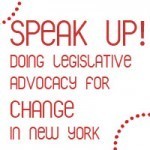
Speak Up! Doing Legislative Advocacy for Change in New York
For most issues that impact people in the sex trade within the United States, marching on Washington or asking the President to make a change is misdirected energy. States write their own criminal codes, as well as most public health, labor, and housing laws – all of which affect people in the sex trades. And cities have important powers too, regulating zoning, deciding how local money is spent, and making
the kind of decisions that affect us on a day-to-day basis like how late parks are open or where police patrol. The language –often just a few words– included in bigger state and city laws can have major impact on the ability of public services and law enforcement to place restrictions on us and penalize us for trying to make a living. On the flip side, the absence of language that protects people in the sex industry can create space for law enforcement and public services to abuse us and violate our human rights.
Being aware of how state and city law making works is important because it gives us the ability to engage in our democracy and demand change for ourselves and our communities. This guide serves as a primer on how the legislative process works and what opportunities there are for people in the sex industry and our allies to engage in making change.
The Red Umbrella Project is a run and led by people who have wide-ranging experiences in the sex trades. We believe there is a lot of value in engaging in advocacy to change policies that negatively affect our communities, and that people with lived experience in the sex industry are the best people to do this work. But we’re not going to lie: there’s a lot stacked against us. The conflation of sex work and trafficking, not to mention the social and legal stigmas associated with the sex trade, make it really difficult to get our messages across. The truth is that getting rid of bad laws and getting better laws passed is slow work, and it is often discouraging. It’s unreasonable to expect that we will have big successes right away. But we are long-term optimists, and we believe that it is crucial that we invest time and energy in working for legislative change, and that it is vital for people like us to have seats at the table when our lives are being legislated.
A note about the audience for this guide: This manual was prepared specifically for people in New York City and State who are interested in doing legislative advocacy and making change in state and city policies. State and city legislative processes vary widely, so although some of the strategies are transferable to other locations, the information about the process of how a bill becomes a law is very different in other cities and states. Please research your local situation before you engage in legislative advocacy!
If you want to talk about how it can be adapted for your local area, please email audaciaray@redumbrellaproject.org
Download the PDF for free here: Speak Up! Doing Legislative Advocacy for Change in New York (15)
April 18, 2012
Condoms As Evidence … of Police Endangering Public Health : Ms. Magazine Blog
[blog post I wrote for the Ms. blog]
Currently in the state of New York, police and prosecutors use condoms as evidence of prostitution-related offenses, including the murky crime of “loitering for the purpose of engaging in a prostitution offense.” Even when they don’t use condoms as evidence to aid them in making arrests and convictions, in the process of doing their stop-and-frisks police often confiscate and destroy condoms.
When I tell people about this practice, they’re usually shocked. It makes no sense whatsoever. New York City has distributed ample free condoms in clinics since 1971; in 2007, New York City was the first city in the U.S. to launch a city-branded condom initiative. So there’s this: New York City’s Department of Health and Mental Hygiene distributesfree condoms to people who are at risk for STIs, including HIV, and unplanned pregnancy, and the New York Police Department takes them away.
When this issue first started getting media attention, a lot of people were up in arms about it because, to paraphrase, “This could happen to anyone carrying condoms!” But let’s be clear: The use of condoms as evidence of prostitution and the confiscation of condoms is very much an issue of profiling. It’s an issue of who the police think might be trading sex: poor people of color, especially trans women, who police perceive as loitering in public space. The use of condoms as evidence of prostitution affects not just people who are trading sex, but also people profiled as trading sex.
April 16, 2012
You might have noticed that the Cooking In Heels project is more...
You might have noticed that the Cooking In Heels project is more than 100% funded on Kickstarter. That’s amazing, and it happened faster than we could have dared to imagine!
So why should you, not-yet-backer, pledge to a project that is already, definitely happening?
Pledging the $30 level means that you are pre-ordering the book and helping us figure out how big our print run should be. The best -and right now the ONLY- way for you and all the people you know to get a copy of Cooking in Heels is by pledging to our Kickstarter campaign. We would love to pre-sell at least 250 hard copy books, which means we need about 175 more pledges at the $30 level to make that happen.
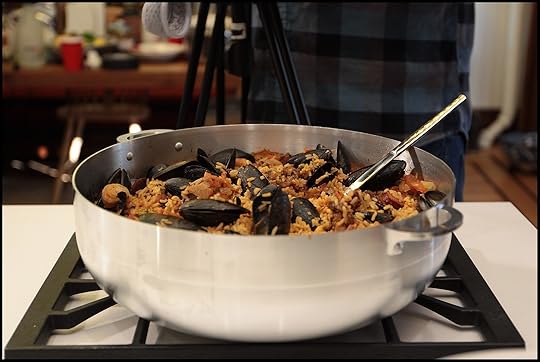
More pledges will make for a better and more beautiful book, with full color pictures of food shot by a professional photographer. In our initial planning for the book, we were afraid to dream up a budget bigger than we could raise funds for, so our original $6000 doesn’t cover photography beyond the cover. If we raise more money (aka, sell more books plus some bigger pledges), we can afford to produce a photo shoot and get the book printed in full color.
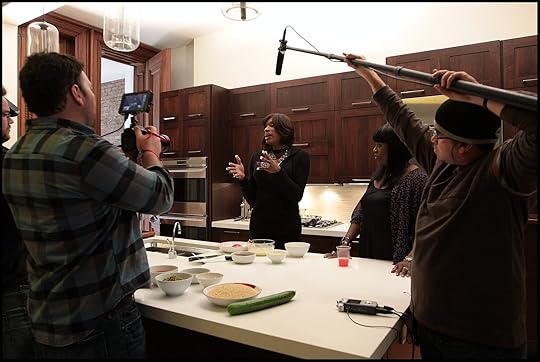
If our fundraising continues to blossom, we can produce a series of video webisodes, which will be free to watch and feature Ceyenne cooking dishes from the book and telling stories. Our first obligation, of course, is to making the book awesome. However, we’ve been getting A LOT of requests to produce a cooking show featuring Ceyenne. We would love love love to make this happen, and have the crew to do it: the video crew that produced Ceyenne’s Kickstarter video is Emmy Award-winning, and the director has directed episodes of food shows like Chopped and Man Vs. Food Nation. Creating a high quality and very entertaining web series is well within our abilities, we just need some more funds to make it a reality.
So for those reasons, and because Ceyenne is amazing, please do pledge what you’re able to, and encourage your friends and colleagues to do the same.

